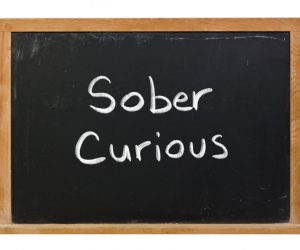Sober Curious? Why It’s Never too Early to Seek Help for Problem Drinking

What Does It Mean to Be “Sober Curious”?
There has been a recent movement among Americans to become “sober curious.” The popularity of social movements of “Dry January,” where individuals will refrain from engaging in alcohol abuse for January, has sparked conversations and thoughts among Americans about what life could be like free of alcohol abuse or alcohol addiction. The term sober curious refers to individuals who question their drinking patterns and how alcohol consumption has impacted their life.
Sober curious people will start to question why they engage in alcohol abuse, how drinking alcohol feels for them, including the impacts it can have on day-to-day life. They also explore the idea of what life would be like should you quit drinking alcohol and the possibilities of what could happen if you were sober.
When Does Drinking Become a Problem?
Drinking alcohol has become normalized within modern-day culture, and many wonder about when alcohol consumption becomes a problem in your life. Alcohol consumption becomes problematic in a person’s life when your day-to-day lifestyle and responsibilities become hindered due to your alcohol consumption.
As alcohol abuse progresses, many will find that their ability to maintain work or school commitments and relationships with loved ones become strained due to their alcohol addiction. In some cases, if you have been engaging in regular alcohol consumption for a prolonged period, there is an increased risk of experiencing adverse side effects that impact your physical health, including liver disease, experiencing hand or body tremors when you are not drinking alcohol, and decrease in mental health condition. You know yourself the best, and if you have noticed that your quality of life has become impacted by your alcohol consumption, it may be time to consider seeking help through an addiction treatment program.
Drinking Levels Defined
There are varying levels of drinking that a person can engage in. Below are the specific levels that alcohol consumption can be classified:
Moderate drinking
Limiting alcohol consumption to two drinks or less in a day for men and one drink or less for women
Binge drinking
For men, drinking five or more drinks within a few hours or the same day is considered binge drinking, whereas, for women, drinking four or more drinks on one occasion.
Heavy drinking
Individuals engaging in heavy drinking are defined as men drinking four or more drinks per day and more than 14 drinks per week. For women, it’s consuming more than three drinks a day or five or more drinks within a week.

Treatment Options for Early Stage Alcohol Use Disorder
Help is available to those concerned about your alcohol abuse and those in the beginning stages of an alcohol use disorder. Addiction treatment is not limited to long-term, severe alcohol use disorders. At WhiteSands Alcohol and Drug Rehab, we offer patients a variety of levels of care that will support them in addressing their alcohol abuse in types of treatment that best suit their needs and lifestyle.
For patients still in the early stages of their alcohol use disorder, outpatient rehab programs will help you gain perspective on what emotions, thoughts, and behaviors have begun influencing your addictive behaviors. With the support of evidence-based therapy methods, patients will be able to heal from the underlying contributes to alcohol abuse while developing the coping skills to manage any future presenting triggers.
Outpatient rehab offers a flexible treatment plan centered around your specific needs for healing while honoring your prior commitments and responsibilities. Individuals who wish to have individual therapy sessions without attending group therapy or a structured outpatient treatment schedule have options to participate in individual counseling sessions within our treatment center. Patients can process their addictive behaviors while healing from the underlying emotions or traumas that have impacted their behaviors or responses to negative emotions or situations.
See what percentages of alcoholics stay sober after treatment here:
When to Seek Help
Suppose you have become sober curious and began reflecting on your alcohol abuse. In that case, there will be indicators and signs that it is time to address your alcohol consumption within an addiction treatment program. For many people, you will know deep within when your alcohol use has progressed to the point of dependency or alcohol addiction. You have begun to notice that your day-to-day lifestyle has shifted, relationships are compromised, and your ability to maintain your responsibilities becomes hindered. Trust your judgment and reach out to WhiteSands today so our team of exceptional addiction counselors and health care professionals can provide you with an individualized treatment program that will support you in overcoming alcohol addiction. To begin discovering a new path in life living in addiction recovery, don’t hesitate to get in touch with us today.
If you or a loved one needs help with abuse and/or treatment, please call the WhiteSands Treatment at (877) 855-3470. Our addiction specialists can assess your recovery needs and help you get the addiction treatment that provides the best chance for your long-term recovery.
